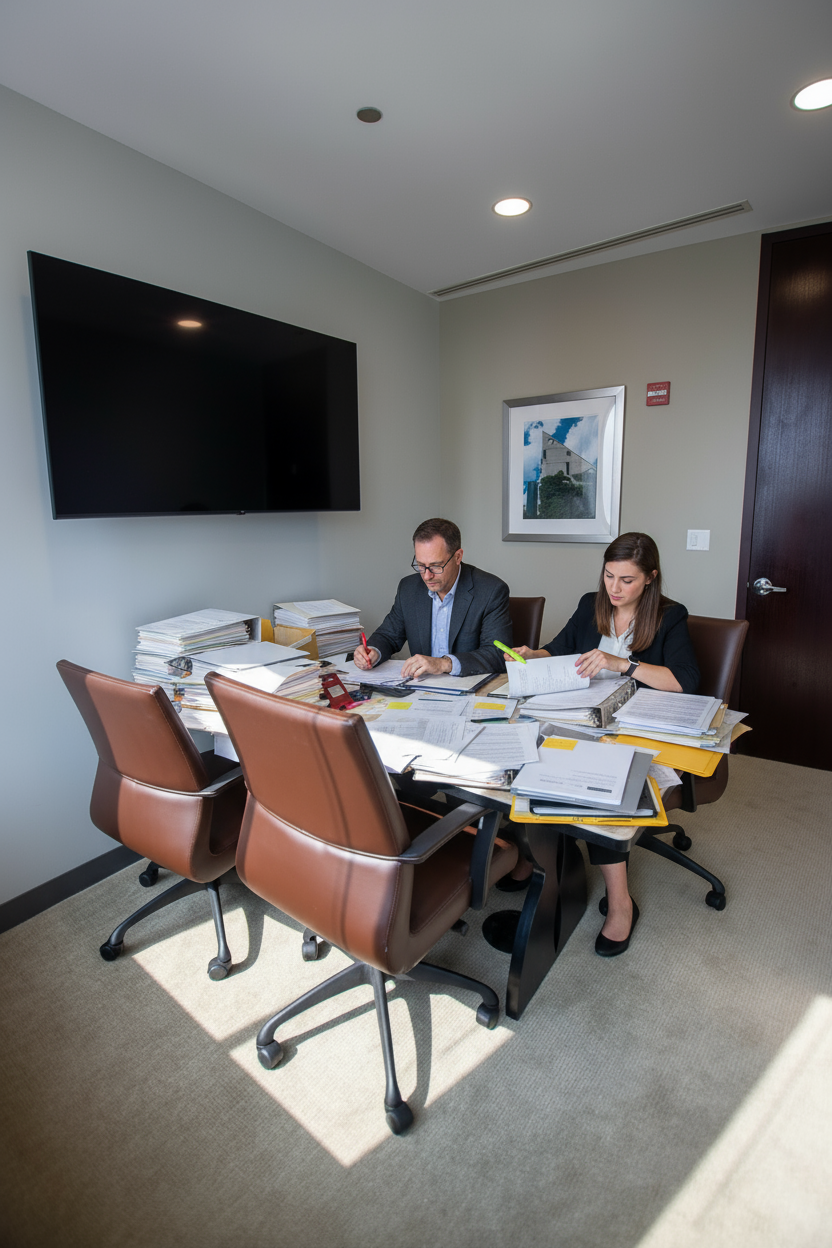Essential Forensic Accounting Skills
Analytical Thinking and Problem-Solving Skills
Forensic accounting requires a unique blend of analytical thinking and problem-solving skills. Professionals in this field must sift through vast amounts of financial data to identify patterns, anomalies, and inconsistencies that could indicate fraud or financial mismanagement. For example, forensic accountants might analyze cash flow statements to detect unusual spikes in expenses or revenue that don’t align with a company’s operations. This meticulous approach is a cornerstone of forensic accounting investigations.
Problem-solving abilities are equally critical. Forensic accountants frequently encounter situations where the evidence is incomplete or intentionally obscured. In such cases, they must think creatively to piece together the puzzle. For instance, if a company’s financial records are missing, a forensic accountant might cross-reference bank statements, vendor invoices, and employee expense reports to reconstruct the missing data. This combination of analytical rigor and innovative problem-solving enables forensic accountants to uncover fraud schemes, resolve financial disputes, and provide actionable insights to stakeholders.
Attention to Detail
In forensic accounting, even the smallest oversight can have significant consequences. Attention to detail is a cornerstone skill, as forensic accountants must meticulously examine financial records, transactions, and supporting documents. A single misplaced decimal point or an overlooked transaction could mean the difference between uncovering a multimillion-dollar fraud scheme and missing it entirely.
Forensic accountants often work with large datasets, requiring them to identify discrepancies that may not be immediately apparent. For example, a minor inconsistency in payroll records could reveal a ghost employee scheme, where fraudulent payments are made to non-existent employees. By maintaining a laser focus on the details, forensic accountants ensure that no stone is left unturned in their investigations. This precision not only helps in identifying fraud but also strengthens the credibility of their findings when presented in legal or corporate settings.
Knowledge of Accounting and Auditing Principles
A deep understanding of accounting and auditing principles forms the foundation of a forensic accountant’s expertise. Familiarity with frameworks like Generally Accepted Accounting Principles (GAAP) and International Financial Reporting Standards (IFRS) is essential for identifying deviations from standard practices. Forensic accountants use this knowledge to assess whether financial statements have been prepared accurately and in compliance with regulatory requirements.
Auditing principles are equally important, as they guide forensic accountants in evaluating the reliability of financial records. For instance, they might use sampling techniques to test the accuracy of a company’s accounts payable or accounts receivable. This expertise allows forensic accountants to pinpoint irregularities, such as inflated revenue figures or understated liabilities, which could indicate fraudulent activity. By combining their knowledge of accounting and auditing, forensic accountants provide a robust framework for uncovering financial misconduct.
Understanding of Legal and Regulatory Frameworks
Forensic accountants operate at the intersection of finance and law, making a thorough understanding of legal and regulatory frameworks essential. They must be well-versed in laws related to fraud, financial crimes, and corporate governance, as these guide their investigations and ensure compliance with legal standards. For example, knowledge of anti-money laundering (AML) regulations is crucial when investigating suspicious financial transactions.
In addition to understanding the law, forensic accountants often collaborate with legal teams and participate in courtroom proceedings. They must be familiar with evidence handling procedures, such as maintaining a clear chain of custody for financial documents. This ensures that their findings are admissible in court. Forensic accountants may also serve as expert witnesses, requiring them to present complex financial data in a manner that is clear and persuasive to judges and juries. Their legal acumen enhances their ability to navigate the intricacies of financial investigations and support successful legal outcomes.
Proficiency in Data Analysis and Technology Tools
The digital age has transformed forensic accounting, making proficiency in data analysis and technology tools a critical skill. Forensic accountants use advanced software like IDEA, ACL, and Tableau to analyze large datasets efficiently. These tools enable them to identify trends, outliers, and anomalies that might indicate fraudulent activity. For example, data visualization software can help forensic accountants create charts and graphs that highlight unusual patterns in financial transactions.
Emerging technologies like artificial intelligence (AI) and blockchain are also becoming increasingly relevant. AI can automate repetitive tasks, such as scanning invoices for irregularities, while blockchain technology provides a transparent and tamper-proof ledger for financial transactions. Forensic accountants who stay updated on these advancements are better equipped to tackle modern fraud schemes, such as cryptocurrency-related crimes. By leveraging technology, forensic accountants enhance the accuracy and efficiency of their investigations.
Strong Communication and Interpersonal Skills
Forensic accountants must be more than just number crunchers; they need strong communication and interpersonal skills to convey their findings effectively. Whether presenting a detailed report to a legal team or testifying in court, forensic accountants must translate complex financial data into clear, concise, and actionable insights. This requires not only technical expertise but also the ability to tailor their communication to different audiences.
Interpersonal skills are equally important, particularly when conducting interviews with suspects, witnesses, or clients. Forensic accountants must ask probing questions while maintaining a professional and non-confrontational demeanor. Building rapport during these interactions can lead to valuable disclosures that aid the investigation. Strong communication and interpersonal skills ensure that forensic accountants can navigate the human element of their work with confidence and professionalism.
Ethical Judgment and Integrity
Ethical judgment and integrity are non-negotiable for forensic accountants, who often find themselves in high-stakes situations involving sensitive financial information. These professionals must remain impartial and objective, even when faced with pressure from clients or stakeholders. For example, a forensic accountant investigating financial misconduct within a company must resist any attempts to downplay or conceal the findings.
Maintaining high ethical standards is not only a professional obligation but also a key factor in building trust with clients and legal teams. Forensic accountants must adhere to codes of conduct established by professional organizations, such as the Association of Certified Fraud Examiners (ACFE). By upholding integrity, forensic accountants ensure that their work is credible, reliable, and aligned with the principles of justice.
Critical Thinking and Skepticism
A questioning mindset is a hallmark of effective forensic accountants. Critical thinking and skepticism enable them to evaluate evidence objectively and identify potential fraud or misrepresentation. For example, if a company’s financial statements show consistent growth despite industry-wide downturns, a forensic accountant might dig deeper to determine whether the figures have been manipulated.
Skepticism is particularly important when dealing with information provided by suspects or parties with vested interests. Forensic accountants must verify the accuracy of claims and corroborate them with independent evidence. This critical approach ensures that their conclusions are based on facts rather than assumptions, enhancing the reliability of their findings.
Industry-Specific Knowledge
Forensic accountants often specialize in specific industries, such as healthcare, banking, or real estate, where they develop expertise in the unique financial practices and risks associated with those sectors. For example, a forensic accountant working in healthcare might focus on detecting fraudulent billing practices, such as upcoding or phantom charges.
Industry-specific knowledge allows forensic accountants to identify red flags that might go unnoticed by generalists. It also enhances the relevance of their findings, as they can provide insights tailored to the specific challenges and regulations of the industry. This specialization makes forensic accountants valuable assets in addressing sector-specific financial risks.
Project Management and Organizational Skills
Forensic accounting investigations often involve multiple cases, tight deadlines, and diverse stakeholders, making strong project management and organizational skills essential. Forensic accountants must prioritize tasks, allocate resources effectively, and ensure that all aspects of an investigation are completed on time.
Organizational skills are particularly important when managing large volumes of financial data and documentation. Forensic accountants must maintain detailed records of their findings, ensuring that all evidence is properly cataloged and accessible. By staying organized, they can conduct thorough and timely investigations, even under pressure.
Adaptability and Resilience
The world of financial crime is constantly evolving, requiring forensic accountants to adapt to new fraud schemes, regulatory changes, and technological advancements. For example, the rise of cryptocurrency has introduced new challenges, such as tracing transactions on decentralized platforms. Forensic accountants must stay updated on these developments to remain effective in their roles.
Resilience is equally important, as forensic accountants often work in high-pressure environments with tight deadlines and complex cases. They must remain focused and composed, even when faced with setbacks or challenges. This adaptability and resilience enable forensic accountants to navigate the dynamic landscape of financial investigations with confidence.
Collaboration and Teamwork
Forensic accounting is rarely a solo endeavor. These professionals often work as part of multidisciplinary teams that include lawyers, IT specialists, and auditors. Effective collaboration enhances the quality of investigations, as each team member brings unique expertise to the table.
For example, an IT specialist might assist in recovering deleted files, while a lawyer provides guidance on legal compliance. Forensic accountants must communicate effectively with these team members, ensuring that everyone is aligned on the investigation’s objectives. By fostering a collaborative environment, forensic accountants contribute to more comprehensive and successful outcomes.
Contact a member of Turning Numbers to schedule a consultation today!




